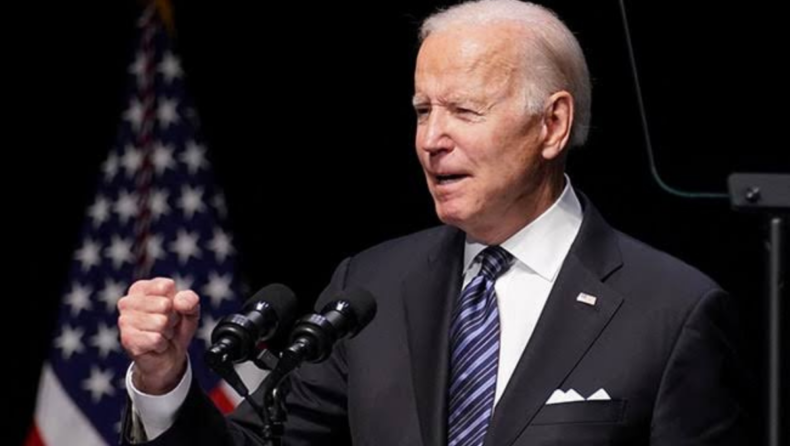President Joe Biden anticipated on Friday that some states will try to arrest women who cross state lines to obtain abortion, following the Supreme Court’s decision to overturn the constitutional right to the procedure nationwide
After the Supreme Court overturned the landmark 1973 Roe v. Wade decision last week, thirteen Republican-led states prohibited or strictly controlled the procedure under so-called “trigger laws.” Women seeking abortions in those states may have to travel to states where abortion is still legal.
On Friday, during a virtual meeting with Democratic state governors on abortion rights, Biden stated that “people are going to be shocked when the first state… attempted to arrest a woman for having crossed a state line to get health care services.”
Biden stated that the federal government will take steps to protect women who must cross state lines to obtain abortions and to guarantee their access to medical treatment in states where it is prohibited.
New Mexico’s governor, Michelle Lujan Grisham, informed the meeting that her state “will not cooperate” in any efforts to track down and punish women who have had abortions.
Abortion rights advocates have introduced legislation in several states to protect women’s ability to terminate pregnancies.
Judges in Florida, Louisiana, Texas, and Utah have since issued rulings prohibiting those states from imposing new restrictive abortion laws, while Ohio’s top court declined on Friday to prevent the Republican-led state from enforcing an abortion ban.
New York Governor Kathy Hochul told the group that “only a handful of states” will be responsible for women’s health across the country.
After the United States Supreme Court overruled the nationwide constitutional right to abortion last week, the top courts in Texas and Ohio allowed Republican-led states to impose abortion restrictions and bans on Friday.
The Texas Supreme Court allowed a nearly century-old abortion ban to go into effect late Friday, after the United States Supreme Court overturned the landmark 1973 Roe v. Wade decision, effectively eliminating women’s constitutional right to abortion.
The order, which enables the law to be imposed civilly but not criminally, was issued on the same day that the Ohio Supreme Court approved the state’s 2019 ban on abortions after six weeks of pregnancy.
The dual orders came just one week after the conservative-majority United States Supreme Court rebuilt states’ authority to ban abortions, sparking a flurry of lawsuits to protect women’s ability to terminate their pregnancies.
Biden also continued by stating that there have not been sufficient votes in the Senate to end the filibuster, a supermajority rule used to formalise Roe v. Wade’s level of protection into law.
He proposed that senators abolish the filibuster, but his proposal was rejected by aides to crucial Democratic lawmakers.
If the filibuster stands in the way – it’s like the right to vote – we should make an exception for this,” said Democratic Vice President Joe Biden. Biden’s statement is more of a show of support than a policy plan because there aren’t enough votes in Congress to end the legislative filibuster.
Biden would almost certainly need their votes for Congress to bypass the filibuster and pass legislation protecting the federal right to abortion.
White House officials did not immediately provide any additional information about the president’s strategy or who in the administration would make it a success.













